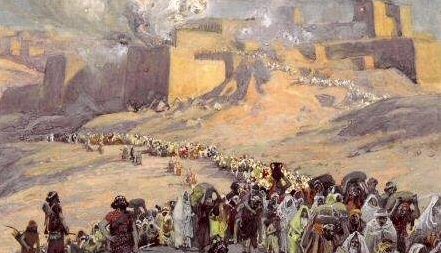Among all the relentlessly grim news, pictures of nature flourishing as humans withdraw have been little moments of light. #rewildtheworld seems the appropriate Instagram hashtag, but I’m reminded more of a line from the biblical book of Chronicles. After Israel is carted off for exile in Babylon we are told: “The land enjoyed its sabbath rests; all the time of its desolation it rested, until the seventy years were completed”.
Nature needed a sabbath, because the nation had not obeyed the mosaic law, which set out clear limits on humankind’s use of the land in order that both could flourish, and had instead exploited and mistreated creation. History doesn’t repeat, but it does rhyme.
Much has been made of the temporary drop in C02 emissions caused by the global economic slowdown. In a piece for UnHerd Stephen Pollard rightly criticised any triumphal crowing at this, but completely misunderstood the argument for why using this time to accelerate a transition to lower carbon ways of living and working is essential. Not, as he seemed to think, to forever trapping people in their homes, but because without tackling climate change, as ruthlessly and rapidly as the world has (to varying degrees) responded to this virus, we will live through them with ever more regularity.
Climate change, deforestation and biodiversity loss all make pandemics more likely. The Intergovernmental Panel on Climate Change has warned that as the world warms, new emerging viruses will be increasingly seen, and our current economic models make their spread almost impossible to control. If we needed any more arguments for governments taking rapid and decisive action to decarbonise, this one feels pretty persuasive right now.
Governments around the world are already designing economic stimulus packages to endeavour to resuscitate economies on life support. Millions pushed into poverty by economic collapse is a strong motivation to favour speed over creativity. The temptation to use tried and tested methods, leaning on fossil-reliant industries, will be strong, but cowardly and counterproductive. Credible models such as the European Green new deal among many others exist and are ready to be implemented. At the very least if the more than $5 trillion currently spent on fossil fuel subsidies globally could be redirected to clean energy our economies could come back to life rapidly and sustainably. This is not a case of choosing the planet over the people, but choosing the people by protecting the planet.
Widespread isolation, a rising death toll, economic collapse — all these things feel almost as traumatic as the biblical story of exile. If we can learn the lessons of that text, and reshape our economies in ways that respect our own and the planets limits, it is not impossible that this deep tragedy could lead us to a new promised land.











Join the discussion
Join like minded readers that support our journalism by becoming a paid subscriber
To join the discussion in the comments, become a paid subscriber.
Join like minded readers that support our journalism, read unlimited articles and enjoy other subscriber-only benefits.
Subscribe